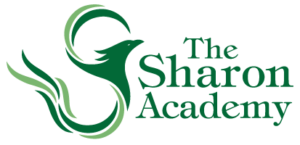Division II Humanities
In this Section
|
Division ll (9th and 10th grades) Literature & Social Studies
The focus of both years in Division II Humanities is developing and refining skills in research, note taking, editing, creative and formal writing, public speaking, vocabulary, and critical thinking.
Students in both years will keep a writing portfolio, including their weekly writing assignments. Students will learn to edit and revise their own and their peers’ work.
Oral presentation skills are emphasized in these two years, with students starting with short, small group presentations, then moving to longer, individual presentations.
The following curricula are taught in alternating years.
YEAR A (2018 – 2019)
The two-year base of Division II Humanities is World Cultures. The theme of year one of the curriculum is the question “What’s the Connection?” Each student conducts significant research on a region of the world, and the class explores diverse topics including education, geography, economics, gender roles, rituals, diet and nutrition, art, and religion, among others. This is the year students will learn the names and locations of most countries in the world.
There are three oral presentations during the year. One focuses on geography of the student’s assigned region, one is a presentation on a person or event that shaped the world, and the final presentation is independently designed by each student based on their interests after their year of exploring cultures.
Literature studied will support the larger curriculum, including formal study of poetry and short stories from a variety of cultures, and the reading of Romeo and Juliet. Independent reading choice is honored by allowing students to choose reading material suitable for their tastes and abilities for required reading outside of class. Films studied will include Baraka and Paradise Now. Current events are an integral part of the curriculum.
YEAR B (2017 – 2018)
This year, the emphasis is on taking common themes and learning what is happening in various parts of the world. This includes the concept and evolution of civilization as a social organizer, and an exploration of peace, conflict, justice, and forgiveness.
A second theme raises the question “What do you believe?” Students will be engaged in discovering the concepts which shape and guide their own lives, using events in history and the lives of others to highlight how those beliefs have helped shape human history.
Literature studied in this year includes The Odyssey , Behind the Beautiful Forevers, and various short stories. Films will include The Dead Poets Society and Hotel Rwanda . Current events and vocabulary development are a regular part of the curriculum. Writing is integral to both English and Social Studies, with experiences in academic and creative writing, editing, and proofreading.
Revised September 2017
